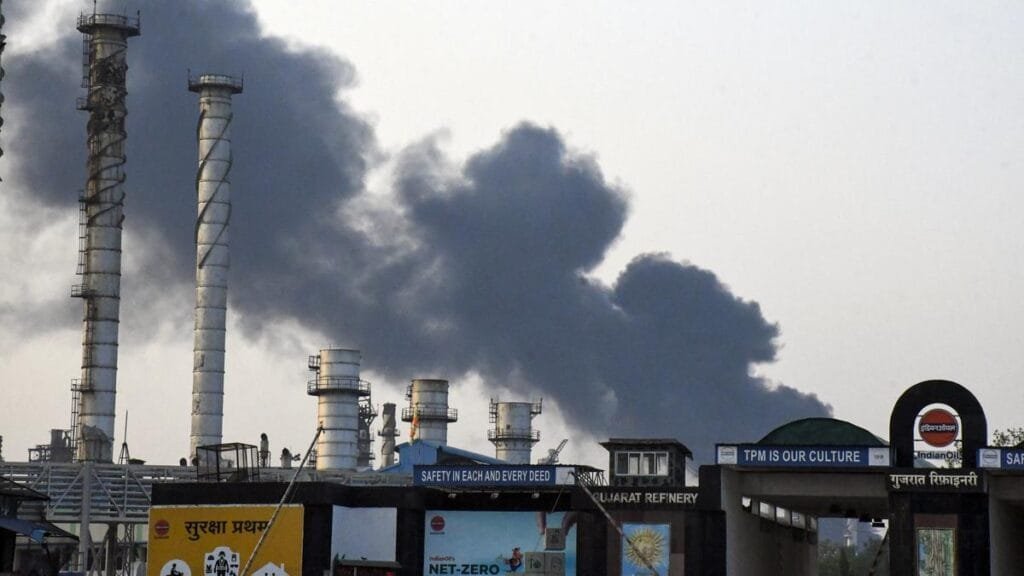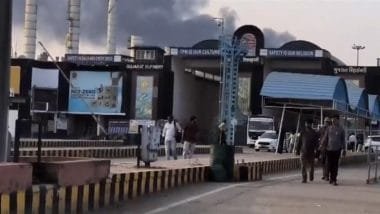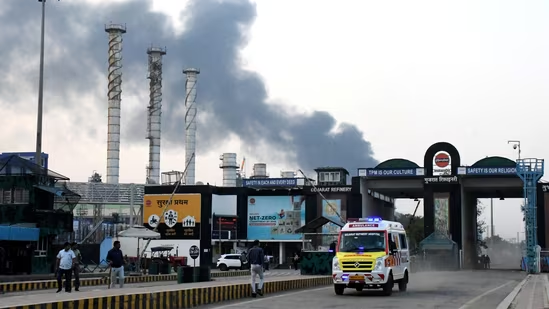Key Highlights:
An explosion at the Indian Oil Corporation’s refinery in Vadodara, Gujarat, has raised huge concerns over the safety of industries and their impact on the environment too. The blast, which took place on November 7, 2024, rocked the local society and raised doubts over the safety measures of the refinery.
Incident Details: An Explosion Suddenly
The explosion occurred in IOC’s one of its major refineries located at Jawaharnagar near Vadodara, considered one of the most significant energy producing centers for India. Preliminary reports suggested that the blast emanated from one of the processing units of the refinery, though the cause for the accident is not yet ascertained. Witnesses report hearing a sound of a blast, then smoke and flames erupting from the complex of the refinery.

The intensity of the blast was felt many kilometers away. The residents of local areas and employees in factories located nearby were shocked by the intensity of the blast. Firefighting teams were called in to put out the fire so that it does not spread to any other part of the refinery. IOC officials say that the situation was brought under control within hours, but not before the damage was caused.
Indian Oil Corporation Response
After the blast, Indian Oil Corporation, in a statement issued by it confirming the incident but asserting its citizenry’s safety, said, “We are working with local authorities and emergency responders to contain the situation and are taking all necessary steps to prevent further damage”.

IOC officials said that an investigation has been done to determine the immediate cause of the explosion. The company made a promise to analyze its safety system and adopt any other extra safety measure that will prevent such a tragedy from happening again.
Casualties in the Vicinity and On the Environment
Though preliminary reports did not include immediate casualties, a few workers were slightly injured and immediately hospitalized in the local hospital. The extent of the damage is yet to be ascertained to the refinery structure, and IOC is likely to announce the final results after the probe is complete.
Another significant concern is the potential effects of the explosion on the environment. The releases by refinery explosions can spread toxic gases and harmful pollutants in the air, affecting health and the environment. Local environmental monitoring authorities are assessing the air quality in Vadodara and nearby regions to understand whether there are potential harmful long-term effects. Preliminary assessments currently indicate that there is not much air pollution effect from the explosion. However, it is still under assessment.
Safety Issues and Industrial Accidents in India
This accident has once again thrown the safety issue to the forefront of discussion on the industrial sector of India. In themselves, refineries and chemical plants are high-risk units which process flammable substances and usually complex operations. Accidents can lead to devastating loss, not only to the workers, but also to neighborhoods and the environment.
India’s industrial history is dotted with refinery blasts and chemical leaks, which reflect the desperation of having adequate safety measures. Experts emphasize the regular inspection of such equipment, modernized in the first place, as well as good emergency response mechanisms to avoid such accidents in an industry.
Community Reactions: Fear and Uncertainty
Residents who stay near the Vadodara refinery have reportedly complained about their safety and how such mishaps recur. Some local residents fear that they may suffer from the prevalence of health issues associated with toxins released into the air because of the explosion. Local leaders have asked the government to be transparent with the probe while seriously considering worker and local safety.
We live close to the refinery and every explosion or fire makes us fear for our lives. The government needs to take responsibility that, at all costs, such incidents are prevented, said a local resident.
Government and Regulatory Oversight
In response to the explosion, the Gujarat State Government has demanded a complete review of safety arrangements in the refinery. Local authorities have agreed to work in close coordination with IOC for any changes in safety which would be required. The Ministry of Petroleum and Natural Gas has also sought a detailed report on the incident along with the steps being taken to ensure such incidents do not recur again.
A number of Indian industrial safety regulations calls for stringent implementation standards in many of the high-risk locations, such as refineries. However, the blast in the Vadodara facility indicates lapses in the application and monitoring at many points; therefore, there is increased demand to stringer the regulations.
Lessons Learned and Way Forward
It is a sharp reminder that IOC’s blast at Vadodara refinery raises the importance of strict safety standards in high-risk industries. Industry experts suggest that modern safety technologies be invested in companies to stage regular safety drills and maintenance to avoid failure of equipment. This would prevent such incidents and protect workers and communities.
The accident will serve as an opportunity for Indian Oil Corporation to reaffirm commitment to safety and review the processes involved. Worker training, equipment update, and maintenance of industry best practices will be imperative steps to ensure no such incident recurs and public confidence is restored.
Conclusion: Need for Better Safety Standards
The attack on IOC’s Vadodara refinery highlights the industrial safety vulnerabilities that need urgent scrutiny. Even as the probe continues, the incident will serve as a reminder of the need for robust safety measures and proper regulatory oversight in India’s energy sector. This will be a path driven by coordination between corporations, regulators, and communities to ensure industrial facilities operate without risking people or the environment.
As the community tries to absorb the aftermath of the explosion, so many are hoping this tragedy will induce a sense of positive change in industrial safety standards in India. Better control and stricter protocols could abate such incidents in the future, bringing in a better tomorrow for workers and those in nearby living spaces.
For Latest News Updates Click Here
